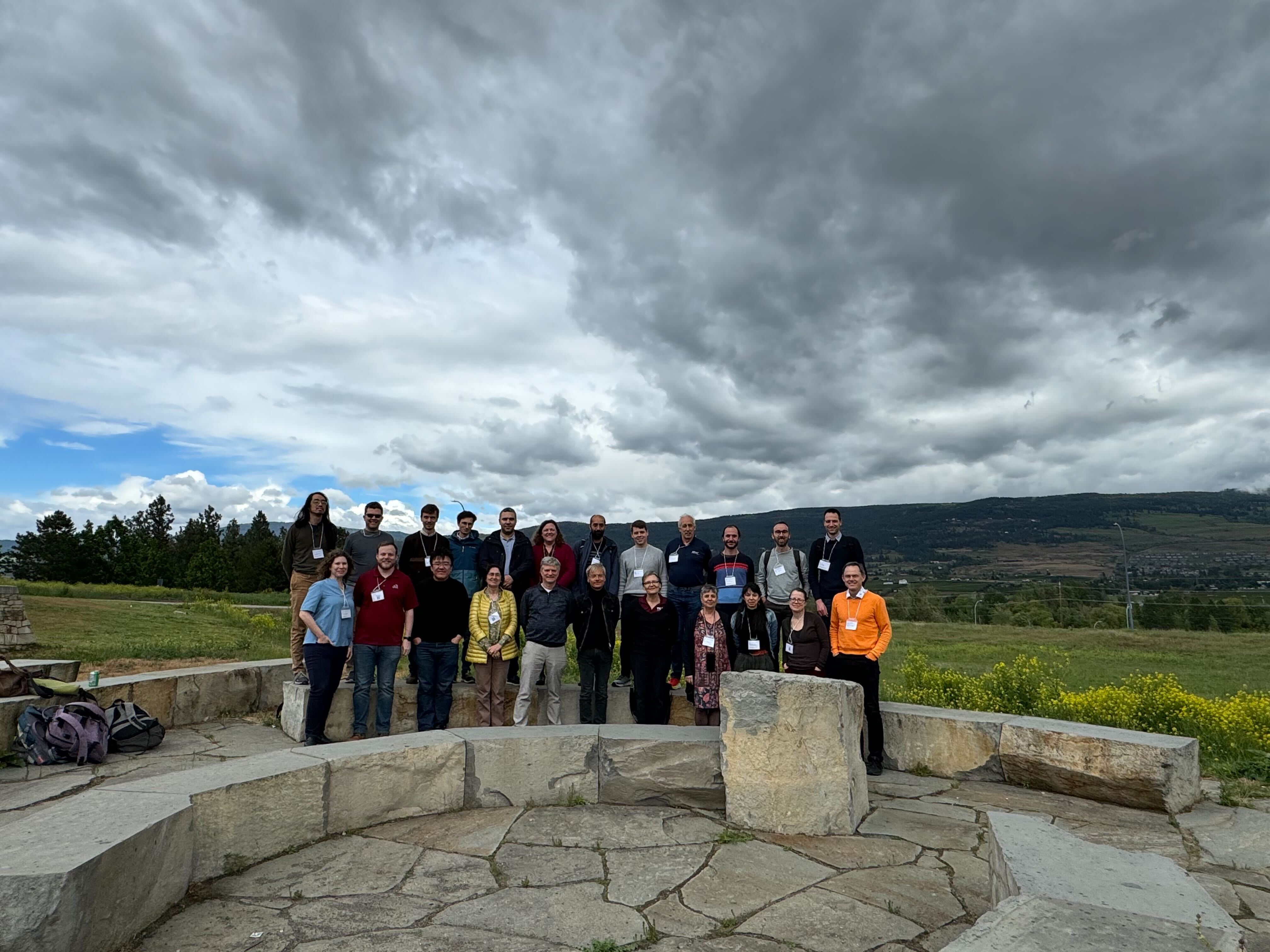Homological Perspective on Splines and Finite Elements (24w5313)
Organizers
Tatyana Sorokina (Towson University)
Ulrich Reif (Technische Universtität Darmstadt)
Deepesh Toshniwal (Delft University of Technology)
Martina Lanini (University of Rome Tor Vergata)
Jenna Rajchgot (McMaster Univeristy)
Description

Workshop Report - Click here to download
The Banff International Research Station will host the “Homological Perspective on Splines and Finite Elements” workshop at the UBC Okanagan campus in Kelowna, B.C., from May 19 - 24, 2024.
Modeling of complicated geometric objects is important in many areas of industry. For example, in the design of airplane wings, optimizing efficiency means understanding airflow, which in turn means solving a system of partial differential equations. At the opposite end of the spectrum, animation in movies such as Toy Story must address this same problem. {\em Splines} are mathematical objects which allow workers in geometric modeling and approximation theory to tackle the questions above.
Amazingly, splines are not just of practical interest in applications, but also are interesting from a purely theoretical mathematical perspective. This workshop brings together researchers from different mathematical communities: on the applied side, those working in numerical analysis and approximation theory, and on the theoretical side, those working in GKM theory, equivariant cohomology and homological algebra. The aim is to bring theory and practice together, and to build collaborations between researchers from different areas. The advancement of knowledge often arises from integration of seemingly different fields.
The Banff International Research Station for Mathematical Innovation and Discovery (BIRS) is a collaborative Canada-US-Mexico venture that provides an environment for creative interaction as well as the exchange of ideas, knowledge, and methods within the Mathematical Sciences, with related disciplines and with industry. BIRS is supported by Canada’s Natural Science and Engineering Research Council (NSERC), the U.S. National Science Foundation (NSF), and Alberta Technology and Innovation.





